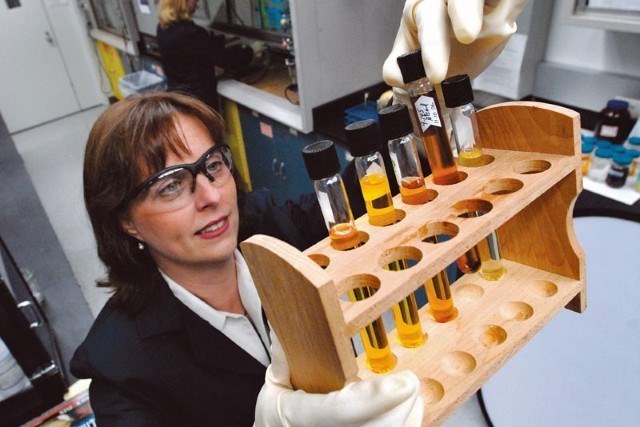SPE Automotive Composites Conference and Exhibition 2020 announces second keynote
The virtual event, occurring Sept. 9-11, announces Dr. Deborah Mieleweski, senior technical leader at Ford Motor Co. as its second keynote speaker.
Share
Read Next

SPE ACCE 2020 second keynote speaker, Dr. Deborah Mielewski. Photo Credit: SPE ACCE 2020
The executive planning committee for the SPE Automotive Composites Conference & Expo on August 31 their second keynote speaker for ACCE 2020, a virtual event jointly produced by The Automotive and Composites Divisions of the Society of Plastics Engineers (SPE, Detroit, Mich., U.S.) and set for Sept. 9-11, 2020. Dr. Deborah Meilewski, senior technical leader of Sustainable and Advanced Materials at Ford Motor Co. (Dearborn, Mich., U.S.) will present “Greener Materials for a Greener World,” which will highlight the broad portfolio of greener materials available now and in the future that can reduce the carbon footprint of the automotive industry and other industries worldwide.
Dr. Mielewski initiated the biomaterials program at Ford in 2001, and it is said that her team was the first to demonstrate soy-based foam that met all the requirements for automotive seating. Ford launched soy-based foam on the 2008 Mustang, and soy seat cushions, backs and headrests have found their way into every Ford North American built vehicle.
“Bio-based foams currently reduce Ford’s greenhouse gas emissions by more than 25 million pounds and reduce petroleum dependence by more than 5 million pounds annually,” says Mielewski. “Ford now has more than 10 renewable materials in production vehicles, including natural fiber-reinforced composites such as wheat straw, rice hulls and cellulose fiber from trees with many of them exceeding the performance of traditional plastic composite materials.”
She continues, “Over the past five years, we have kicked off several new material investigations with cellulose nanofibers, materials from carbon dioxide, and we are applying our knowledge in green materials to the exploding area of 3D printing.”
Since the first laboratory success in soy foam over a decade ago, the Ford biomaterials research team are said to have been working to expand the use of sustainable plastic materials in vehicles. They continue to search for innovative and creative bio-technologies that can reduce dependence on petroleum, create new markets for agricultural products and additional revenue streams for farmers, as well as reduce vehicle weight, which results in improved fuel efficiency and lower vehicle emissions. Late last year, Ford, with partner McDonald’s, was the first to launch coffee chaff-reinforced plastic on the headlamp housings of the Lincoln Continental.
In addition to daily keynote presentations, the three-day virtual ACCE will feature approximately 40 technical presentations, two panel discussions and 22 sponsors presenting advances in materials, processes and equipment for both thermoset and thermoplastic composites in a wide variety of transportation applications. SPE says the daily virtual networking opportunities will enhance the value of the event, which expects to draw more than 400 attendees worldwide.
Visit the SPE ACCE website to register and for more event information.
Related Content
-
Jeep all-composite roof receivers achieve steel performance at low mass
Ultrashort carbon fiber/PPA replaces steel on rooftop brackets to hold Jeep soft tops, hardtops.
-
Recycling hydrogen tanks to produce automotive structural components
Voith Composites and partners develop recycling solutions for hydrogen storage tanks and manufacturing methods to produce automotive parts from the recycled materials.
-
Automotive chassis components lighten up with composites
Composite and hybrid components reduce mass, increase functionality on electric and conventional passenger vehicles.














.jpg;maxWidth=300;quality=90)
